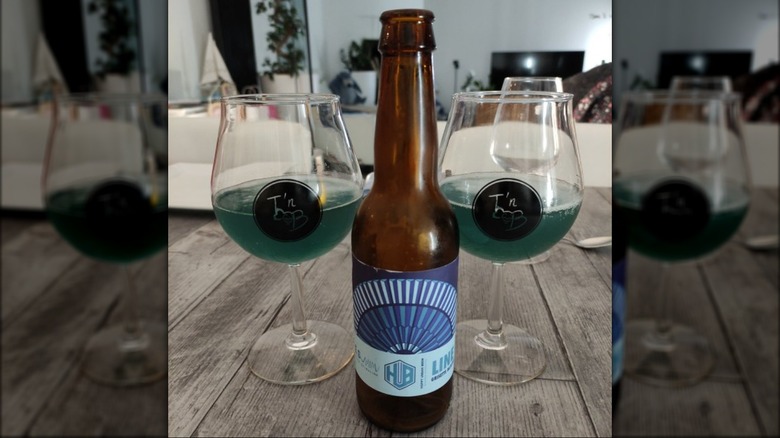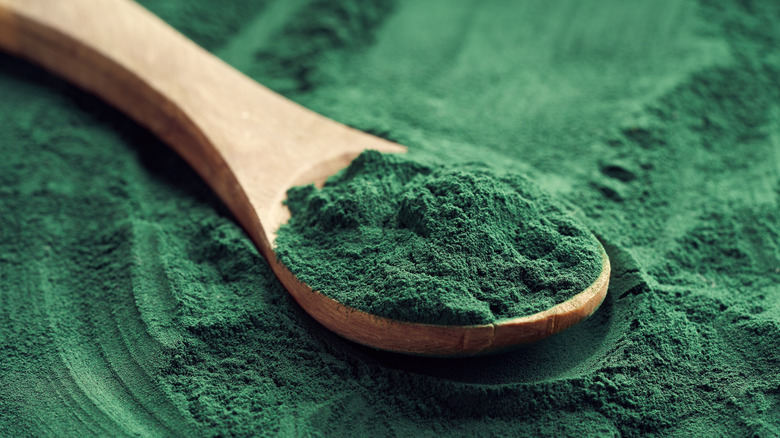Where This Sold-Out French Beer Gets Its Surprising Blue Color
Does anyone remember the blue wine craze? It started in 2015, when the Spanish company Gik introduced a sweetened wine made from Spanish grapes and pigmented with grape skin extract and natural indigo coloring. By the following year, the not-very-well-reviewed wine-like beverage had made its way to American shores (via TIME). It then inspired a French take, made by Vindigo by passing Chardonnay through the pulp of red grape skins that lent the tipple its blue hue.
And it appears that blue-colored alcoholic drinks made a lasting impression on the French, who have now come out with a blue beer (via Food & Wine). Brewed by Hoppy Urban Brew (aka HUB), located in the northeastern part of the country, the blue beer gets its hue from spirulina, the blue-green algae that's often billed as a superfood. "It's getting an enormous amount of interest and curiosity on the part of the public," Sebastien Verbeke, a HUB employee, told Reuters.
A collaboration between brewers and algae farmers
Bottled by the Roubaix brewers Hoppy Urban Brew, Line is a hoppy session IPA with a deep, marine blue color (via Reuters). That blue tint comes from spirulina, a blue-green algae that is commonly farmed and used in health food supplements for its high levels of protein, vitamins, and minerals. According to Reuters, HUB gets its spirulina from the nearby farm Etika Spirulina, who teamed up with the brewery in an effort to popularize its product.
While the spirulina lends a dark blue color that is the result of phycocyanin, a naturally occurring pigment (via ScienceDirect), it's not really a distinctive flavor element in the beer itself. "Since it's blue, our brains expect a certain note, but, no, we really have here a session IPA, a very light beer, and the flavors of the beer really come through," HUB employee Mathilde Vanmansart told Reuters as she sampled Line. "We can taste that it has a light alcohol content with quite the taste of hops, with slight notes of citrus."
Blue beer? Sounds like a more healthful alternative to the green-dyed stuff that's typically guzzled by the pintful on St. Patrick's Day. Perhaps it will be a good option to sip on World Algae Day this October.

